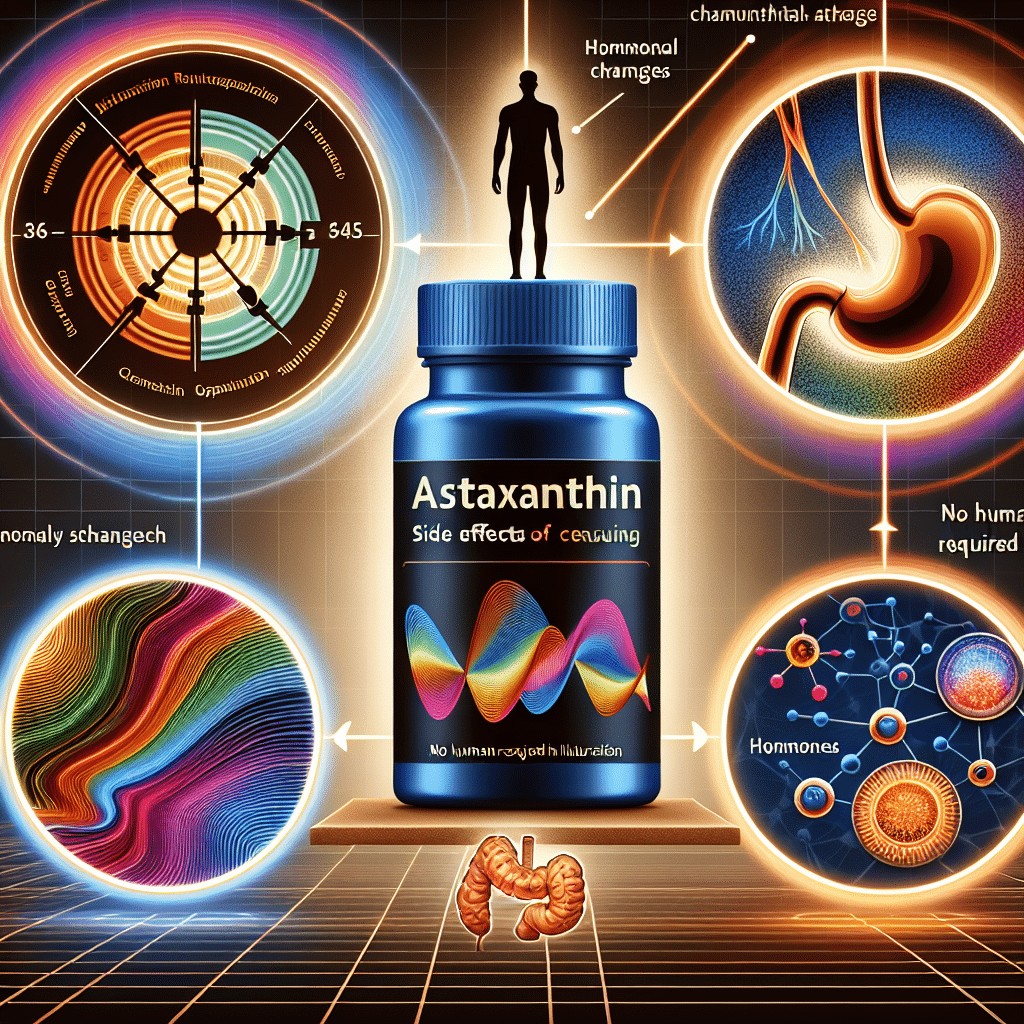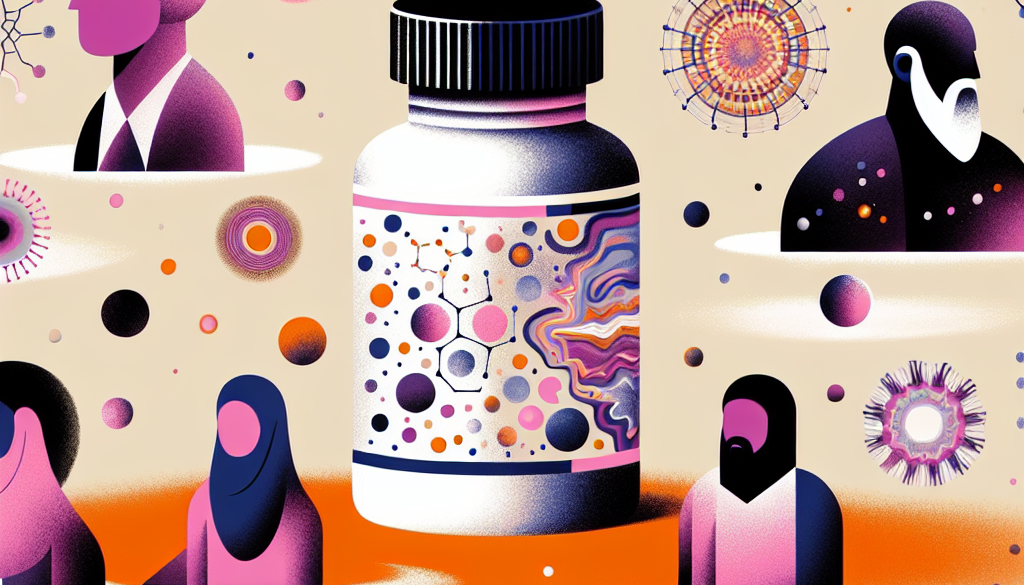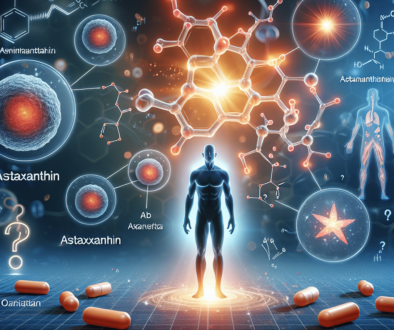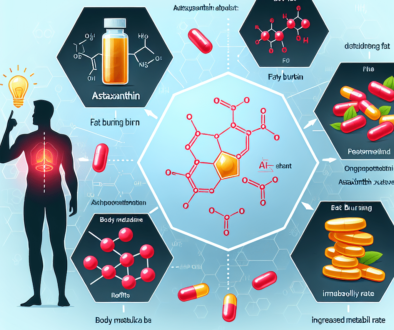What are the bad side effects of astaxanthin?
-
Table of Contents
- Astaxanthin Side Effects: Understanding the Potential Risks
- Potential Side Effects of Astaxanthin
- Understanding the Research
- Hormonal Changes
- Allergic Reactions
- Gastrointestinal Issues
- Skin Discoloration
- Lowered Blood Pressure
- Interactions with Medications
- Case Studies and Statistics
- Conclusion: Weighing the Benefits Against the Risks
- Enhance Your Health with ETprotein’s Premium Protein Products
Astaxanthin Side Effects: Understanding the Potential Risks

Astaxanthin, a naturally occurring carotenoid found in certain algae and seafood, has gained popularity as a dietary supplement due to its potent antioxidant properties. It’s often touted for its benefits, which include supporting skin health, enhancing athletic performance, and potentially reducing the risk of certain diseases. However, as with any supplement, it’s crucial to be aware of the potential side effects. In this article, we’ll explore the bad side effects of astaxanthin, supported by scientific research and expert insights.
Potential Side Effects of Astaxanthin
While astaxanthin is considered safe for most people when consumed in food or as a supplement within the recommended doses, some individuals may experience adverse effects. Here are the most commonly reported side effects:
- Hormonal Changes: Some studies suggest that high doses of astaxanthin may influence hormone levels, potentially affecting estrogen and testosterone balance.
- Allergic Reactions: Although rare, some individuals may be allergic to astaxanthin or its sources, leading to symptoms like hives, swelling, or difficulty breathing.
- Gastrointestinal Issues: High doses of astaxanthin can cause abdominal pain, nausea, or constipation in some people.
- Skin Discoloration: Consuming large amounts of astaxanthin can lead to a change in skin color, giving it an orange or reddish tint.
- Lowered Blood Pressure: Astaxanthin may lower blood pressure, which could be a concern for those with hypotension or those taking blood pressure medications.
- Interactions with Medications: Astaxanthin can interact with certain medications, such as anticoagulants and antihypertensive drugs, potentially altering their effects.
Understanding the Research
While the side effects mentioned are potential risks, it’s important to note that most research indicates that astaxanthin is well-tolerated when used responsibly. Let’s delve into some of the studies and case reports that shed light on these side effects.
Hormonal Changes
Research on the hormonal effects of astaxanthin is limited, but some animal studies have indicated that it may influence hormone levels. For example, a study published in the “Journal of Endocrinology” found that astaxanthin could affect testosterone synthesis in mice. However, human studies are needed to confirm these findings and understand their implications.
Allergic Reactions
Allergic reactions to astaxanthin are infrequent but can occur, particularly in individuals with allergies to other carotenoids or ingredients found in astaxanthin supplements. Case studies have documented instances of allergic reactions, emphasizing the need for caution among those with known allergies.
Gastrointestinal Issues
Gastrointestinal discomfort is one of the more common side effects associated with high doses of astaxanthin. Clinical trials often report mild symptoms that typically resolve without intervention. It’s advisable to start with lower doses and gradually increase to assess tolerance.
Skin Discoloration
Carotenodermia, the medical term for skin discoloration caused by high levels of carotenoids in the diet, is a harmless but noticeable side effect. It’s reversible upon reducing or discontinuing astaxanthin intake.
Lowered Blood Pressure
Several studies have demonstrated astaxanthin’s potential to lower blood pressure, which could be beneficial for those with hypertension but problematic for individuals with already low blood pressure or those on antihypertensive medications.
Interactions with Medications
The possibility of astaxanthin interacting with medications, particularly blood thinners and blood pressure drugs, is a concern that warrants further investigation. Patients on such medications should consult their healthcare provider before starting astaxanthin supplements.
Case Studies and Statistics
While the scientific literature on astaxanthin’s side effects is not extensive, there are a few case studies and surveys that provide insight into its safety profile. For instance, a survey conducted on individuals taking astaxanthin supplements found that less than 1% reported any adverse effects, most of which were mild and transient.
Conclusion: Weighing the Benefits Against the Risks
In conclusion, astaxanthin is a powerful antioxidant with a range of potential health benefits. However, it’s essential to be aware of the possible side effects, especially when taken in high doses or in conjunction with certain medications. Most people can safely enjoy the benefits of astaxanthin by adhering to recommended dosages and consulting with a healthcare professional if they have any underlying health conditions or are taking medication.
Enhance Your Health with ETprotein’s Premium Protein Products
If you’re looking to complement your diet with high-quality protein sources, consider ETprotein’s range of organic bulk vegan proteins and L-(+)-Ergothioneine (EGT). Their products are non-GMO, allergen-free, and boast a neutral taste, making them an excellent addition to any health-conscious individual’s regimen. Whether you’re involved in sports nutrition, weight management, or general wellness, ETprotein has a protein solution for you.
About ETprotein:
ETprotein, a reputable protein and L-(+)-Ergothioneine (EGT) Chinese factory manufacturer and supplier, is renowned for producing, stocking, exporting, and delivering the highest quality organic bulk vegan proteins and L-(+)-Ergothioneine. They include Organic rice protein, clear rice protein, pea protein, clear pea protein, watermelon seed protein, pumpkin seed protein, sunflower seed protein, mung bean protein, peanut protein, and L-(+)-Ergothioneine EGT Pharmaceutical grade, L-(+)-Ergothioneine EGT food grade, L-(+)-Ergothioneine EGT cosmetic grade, L-(+)-Ergothioneine EGT reference grade and L-(+)-Ergothioneine EGT standard. Their offerings, characterized by a neutral taste, non-GMO, allergen-free attributes, with L-(+)-Ergothioneine purity over 98%, 99%, cater to a diverse range of industries. They serve nutraceutical, pharmaceutical, cosmeceutical, veterinary, as well as food and beverage finished product distributors, traders, and manufacturers across Europe, USA, Canada, Australia, Thailand, Japan, Korea, Brazil, and Chile, among others.
ETprotein specialization includes exporting and delivering tailor-made protein powder and finished nutritional supplements. Their extensive product range covers sectors like Food and Beverage, Sports Nutrition, Weight Management, Dietary Supplements, Health and Wellness Products, and Infant Formula, ensuring comprehensive solutions to meet all your protein needs.
As a trusted company by leading global food and beverage brands and Fortune 500 companies, ETprotein reinforces China’s reputation in the global arena. For more information or to sample their products, please contact them and email sales(at)ETprotein.com today.











